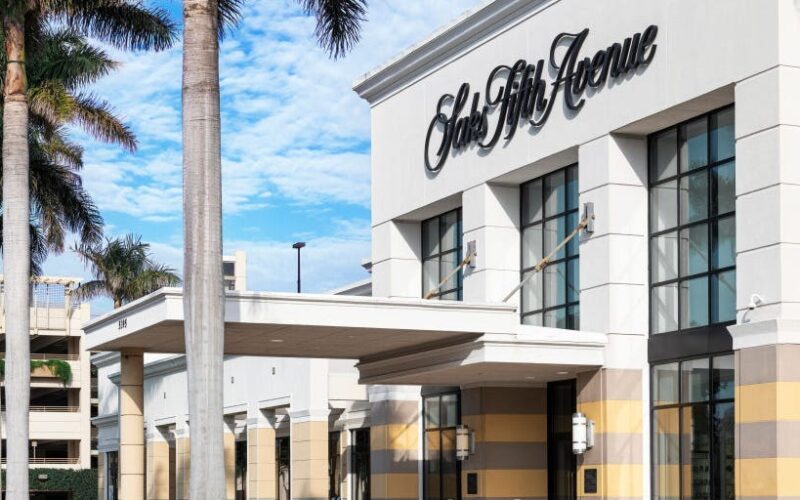Amazon — which has long tried to boost its luxury offerings as part of its “everything store” concept — and Salesforce are getting in on it, too, with both taking minority stakes in the new company, Saks Global. The pair will provide technology and logistics support to the latest luxury giant, the Journal said.
As e-commerce and the power of luxury conglomerates like LVMH and Kering have grown, department stores are facing diminishing returns. In 2020, Lord & Taylor filed for bankruptcy. Macy’s announced in February that it would be closing 150 stores over the next three years.
In a way, the old palaces of retail are becoming places to browse, perhaps, but not purchase.
Take somebody looking to buy a new luxury bag. They may visit Bergdorf Goodman, a Neiman Marcus-owned store in New York, to try on a few for size before setting their sights on the Loewe Flamenco bag, an it bag from an it brand.
Rather than shell out $2,600 on the spot, they may go home and give it a think — and a Google. Maybe there’s a discount code available on e-commerce retailer like Net-a-Porter or Moda Operandi, known for their sales. If not, rather than schlep back to the department store, why not go straight to the source, the Loewe boutique? Like many LVMH brands, Loewe’s stores have gotten upgrades in recent years and will surely roll out the royal treatment to those willing to drop a couple of grand. (And you get some nice branded packaging for any unboxing TikToks you want to do, of course.)
The above situation is playing out more and more often, making the consolidation and synergies that a Saks-Neimans merger, which has been in talks for months, all the more appealing. It also makes the new company’s leader — Marc Metrick, who runs Saks’ e-commerce business — a natural choice.
But it is worth noting that, even together, the brand is a fraction of the size of other luxury powerhouses. The Journal estimated the combined business would have about $10 million in retail sales — just over 10% of the $94 billion LVMH brought in last year.
It may be those conglomerates, which own top brands like Louis Vuitton and Dior (LVMH) and Gucci and Saint Laurent (Kering), that the new Saks is trying most fervently to fend off, especially since many have their own stores or e-commerce operations.
Combined, Saks and Neimans will have more negotiating power with designers, forcing them to loosen their tight control on retail channels, and be able to cut certain logistics costs. The new company can use those savings to boost marketing or the in-store experience to rival those of branded boutiques.
They’ve got something else in the back pocket of their designer jeans. No matter how mighty Bernard Arnault’s LVMH is, there will always be people who do want to browse that curated selection of handbags or outfits — and at least a few of those people will splurge on the spot.
Source link
lol

